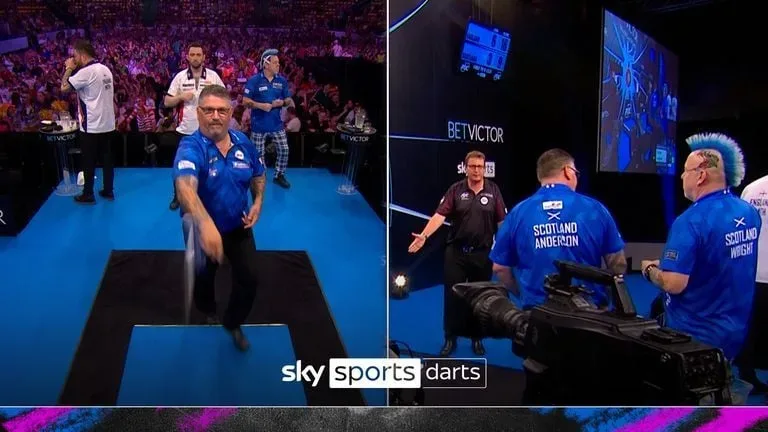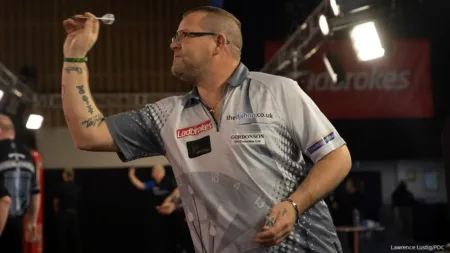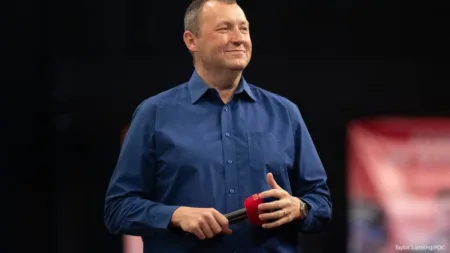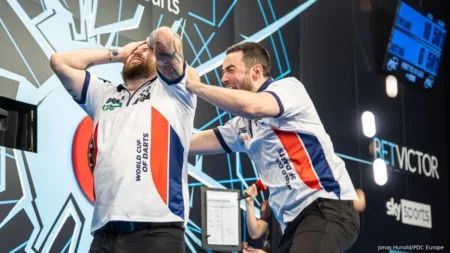Darts Semifinal Dispute: Referee’s Controversial Call Sparks Debate
In a gripping semifinal matchup at the 2024 World Cup of Darts, a contentious moment unfolded between Scotland’s Gary Anderson and the tournament’s referee, Kirk Bevins. The incident occurred during the tenth leg of the England-Scotland clash, where Bevins deemed one of Anderson’s throws invalid.
The two-time world champion was aiming for double 18 with three darts in hand when his first attempt landed in the single segment, forcing him to switch to double 9. Anderson, however, failed to hit the double, leaving double 4 for his teammate Peter Wright.
Amidst visible frustration, Anderson then threw his third dart into the single 1, but Bevins quickly intervened, citing rule 5.7.3 of the tournament’s rulebook. The rule states that “during a player’s throw, no player shall tread on any part of the raised oche nor shall the player deliver any dart whilst their feet are in a position other than grounded on the floor behind the toe edge of the raised oche.” Bevins determined that Anderson’s left foot had crossed the oche line as he released the dart, rendering the throw invalid.
Anderson, however, strongly disagreed with the referee’s decision and engaged in a heated argument. Bevins, though, remained steadfast in his ruling, denying the “Flying Scotsman” the opportunity to take the final dart.
“Darts referees make judgment calls based on what we see at the oche. If someone is throwing a dart away while walking, the referee has to make a quick decision. If you want every dart to count, make sure both feet are behind the oche rather than walking and relying on VAR,” he stated.
The incident sparked a lively debate among darts enthusiasts, with some calling for the implementation of VAR (Video Assistant Referee) to assist the officials in such close calls. Nonetheless, Bevins’ decision stood, and the match continued, with England ultimately prevailing over Scotland in a closely contested semifinal.
🔗 Source










